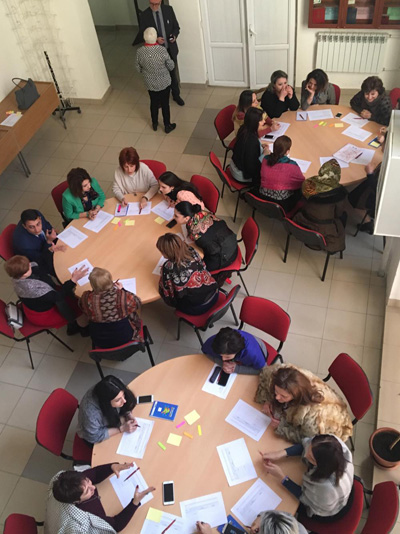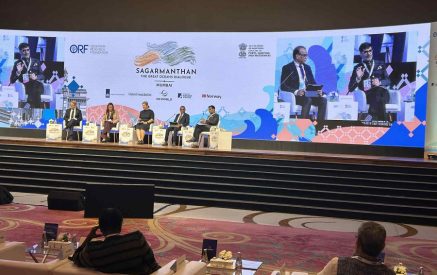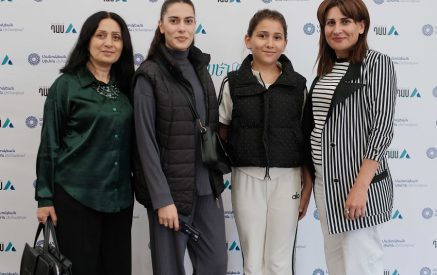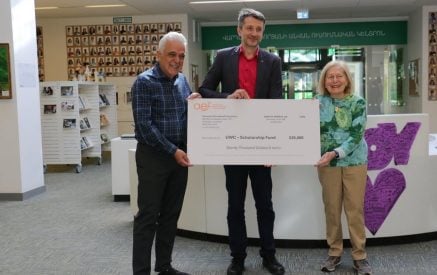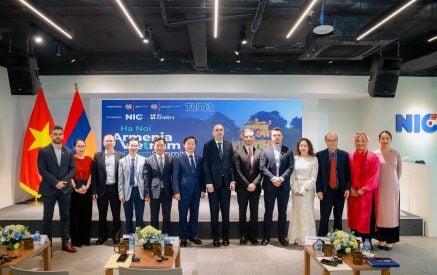A record number of political leaders, philanthropists and executives from all over the world attended the World Economic Forum’ annual meeting in Davos, Switzerland from 23 to 26 January, this year, to use the gathering of the elites to further their national interests on the international stage. After a 9-year break, the delegation of Armenia, headed by the Prime Minister Karen Karapetyan, also participated in this great event. The agenda of the meeting was extensive, ranging from politics, to key human rights and education issues. The World press is actively circulating a remarkable talk about the prospective education issues delivered by Jack Ma, the founder and the Executive Chairman of the Chinese ecocommerce giant Alibaba, who also took part in the forum. The main topic of the talk was that modern education should meet the real-world needs in the context of global developments. As he said, robots may have been replaced about 800 million workers by 2030, and if we do not change our approach to education and the content of the teaching, we will have serious problems in about 30 years. What we teach today to our children, is 200 years old. Teachers should not transfer knowledge in the classical sense of the word, but they must be trained to provide students with flexible or multilayered skills that will help individuals to distinguish themselves from their environment, become individualized, easily integrate into society and be successful in the labor market. Jack Ma stressed the importance of transferring values to children, independent thinking, teamwork, faith and care for others.
On almost the same days, on January 22-23, an international seminar and training on “Supporting Multilingual Classrooms” was organized for the English language teachers, lecturers, headmasters of schools, textbook writers and policy makers from the National Institute of education of the Ministry of Education and Science of Armenia at Yerevan Brusov State University of Languages and Social Sciences. The seminar and training was fully funded by the European Centre for Modern Languages (ECML) of the Council of Europe and the European Union. The ECML regularly responds to Armenia’s requests to initiate training and consultancy activities for Armenia to boost quality linguistic and intercultural education.
The new pedagogical methodology was delivered by international experts Terry Lamb from the University of Westminster from Great Britain and Mercè Bernaus from the Autonomous University of Barcelona from Spain. 31 training participants were trained how to work in a multilingual environment and use holistic approaches to language learning and teaching including the language of schooling, foreign languages and home languages.
What was this training important for the Republic of Armenia? At present, modern education is difficult to imagine without multilingualism and multiculturality in the learning process. It is essential to incorporate intercultural communication into school and university curricula, promote cultural and linguistic diversity among the learners, and equip them with new skills and competences which are relevant in the multicultural global world.
The Republic of Armenia has already received about 14,000 refugees from Syria. Although they are all our compatriots, displaced schoolchildren need support in integrating into an educational environment and scoring high academic achievements. The more accurate the policy of multilingualism and multiculturalism in our country is, the more profitable our young compatriots will emigrate.
Training also pursued another goal, to stimulate mobility of learners and internationalization of educational programmes. It is not a secret for everyone that currently students of Armenian universities are better integrated into international mobility initiatives than their younger school-age friends who have fewer opportunities to participate in exchange programmes, to recognize other cultures, to improve their foreign language skills, etc. Many of them at the age of 9-15 are not psychologically ready to participate in international mobility events outside Armenia. This fact negatively influences the shaping of their outlook, the choice of profession and other related issues, compared to their European peers.
In the context of international mobility, it is also important to attract students to our schools from other countries for educational purposes, which will serve as a stimulus for the expansion of multilingualism as well as contribute to a number of issues related to the financial stability and sustainability of schools in Armenia.
For this year three other trainings are planned for Armenia – on European Language Portfolio for German language teachers, Content and Language Integrated Learning, the Framework of Reference for Pluralistic Approaches to Languages and Cultures (CARAP-FREPA) which will train around 90 language professionals and help to advance national reform processes in the country.
The educational system of the Republic of Armenia has much to do pace up with the world and to take and advance global challenges, but the first serious steps are already being made and the importance of reforms is taken and recognized at the highest levels of the state.
Lusine Fljyan
Doctor of Philology, Professor
Vice-Rector for Science and International
Relations at Yerevan Brusov State University
of Languages and Social Sciences



















































